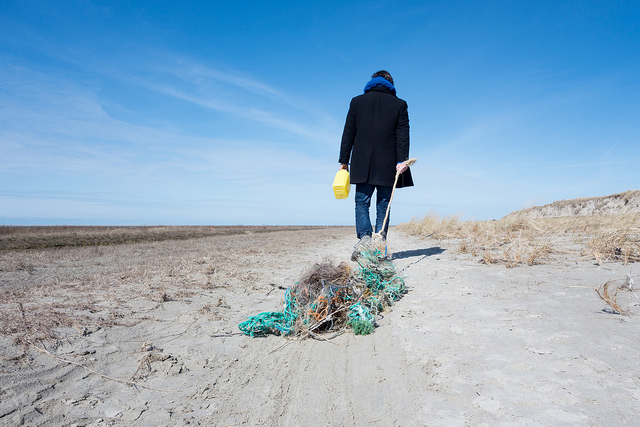
A shocking new study predicts that by the year 2050, Earth’s oceans could be populated more heavily with plastic than fish.
The World Economic Forum’s report, entitled “The New Plastics Economy: Rethinking the future of plastics,” stated that in the last 50 years, plastic production has already increased 20-fold, and is expected to double again within the next two decades.
The study goes on to relate that a mere 14 percent of plastics are recycled, with 70 percent ending up in either landfills or the sea.
Besides being an eyesore, plastic waste is deadly for marine life. According to the Ocean Conservancy, plastic bags are the second deadliest form of trash for sea life. Abandoned fishing gear like fishing line is the most harmful form. The long-term effects on humans of consuming fish that have ingested plastic are unknown.
A stunning half of the ocean’s plastic waste comes from only five countries: China, Indonesia, the Philippines, Thailand, and Vietnam, the Ocean Conservancy reports. The theory is that as these countries have enjoyed growing economic power, consumerism has increased faster than their waste management capabilities have.
But the World Economic Forum’s report is not all doom and gloom.
The full report includes proposed solutions, particularly in the area of prolonging the life cycle of plastic materials so they don’t become simply single-use waste.
We can change the predictions—if we change our behavior.
Here are five outrageously simple things we can all do right now to reduce plastic waste:
Recycle. If your community doesn’t have a strong recycling program in place so that recyclable materials are being collected for reuse, help create one.
Bring your own bags. Keep reusable shopping bags for groceries—including produce—in your car or handbag.
Buy in bulk. The bulk section of grocery stores is a treasure trove of staples like rice, cereal, pasta, flour and spices. Bring your own container to the bulk section and save resources and money.
Make your own cleaners. Rather than purchasing household cleaners, make your own using equal parts white vinegar and water (you can add essential oil for scent). This keeps your home less toxic and allows you to refill one bottle instead of having to purchase another each time you run out.
Use mason jars/reuse Ziplocs for storing food. Glass mason jars are a great alternative for storing leftovers. If you can’t break your Ziploc addiction, wash them out and reuse.
~
Relephant:
14 Tips for a Successful Plastic Purge.
~
Top 10 ways to get Plastic out of your Home, Yourself & your Children:
~
~
Author: Lynn Shattuck
Editor Khara-Jade Warren
Image: Lucy Lambriex/ Flickr
~











Read 2 comments and reply